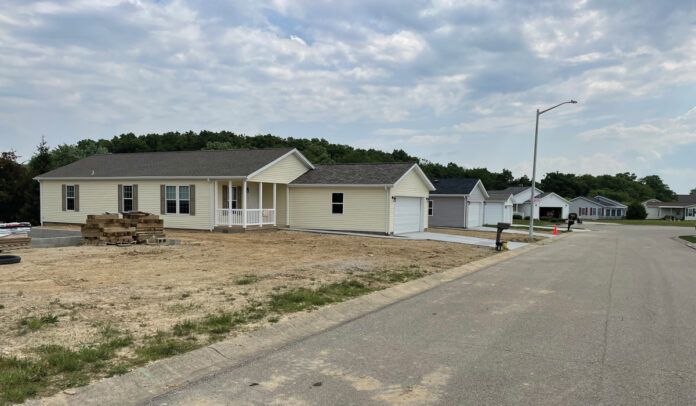Successful Community Management is a Balance Between Returns and Creating Resident Value
Ownership and operation of manufactured home communities continues to grow in complexity over time. The effort it takes is not “paint by numbers” nor a walk in the park. Yet, if approached in the right way with the right management team, operating communities can be rewarding and profitable. It takes effective assessment, planning and execution and, perhaps most importantly of all, industry knowledge.
Old and new owners alike need more than a pegboard accounting system and a community manager to ‘keep the lights on.’ Savvy operators can turn a 2-star asset into a 4-star property, but operators with weak management can transform a 4-star Community into a 2-star money pit.

What are the Fundamentals of Community Management?
At Blank Family Communities, we refer to these as the ROCC of our business. If you master these four components of operating, chances are you will be successful.
Resident Relations
The biggest shift in mentality that we have seen with the recent industry consolidation pertains to understanding what is truly important to the success of a community. So often we look at the bottom line and the bottom line only, forgetting about the customer that we actually serve — our residents. We know that a happy resident who finds value in their home and community will fight for that home when times are tough, and in affordable housing there are many tough times. The fundamental principles of resident relations are:
— Always provide clear channels of communication for your residents to speak with management
— Properly maintain community infrastructure
— Provide a safe and fair environment for your residents
— Ensure collections and curb appeal are handled efficiently
Occupancy
This is the most complex part of our business. A common misconception with MHC’s is that residents stay forever. Spoiler alert: they do not. Yes, it is true that a resident who owns their home has a longer residency than an apartment renter, but even in the most stable of communities, vacancies come up. Ensuring that every vacancy is handled correctly is imperative to the success of each community. When someone is leaving their home, your first question should be: Do I want this home to stay in my community? If the answer is yes, buy it. Once purchased, you want the home to present in a way that attracts your ideal resident. Often, we see operators try to save money on renovation costs and in turn, they attract a less desirable resident. Do not rush to fill occupancy if it means getting an under-qualified resident.
Collections
The cornerstone of any good operation is collecting the money that you bill out. One thing that is very important to us in the communities we manage is creating an online payment portal for residents to use. Currently, we have about 90 percent of our portfolio using a payment portal. Not only does it reduce the chances of theft, but it increases the availability of on-site staff. If community managers do not have to manually deposit rent, they can spend more time in the community or going after delinquencies. With collections, we always employ a fair yet firm hand. Our residents have a contractual obligation to pay rent and although we take a compassionate approach in everything that we do, we expect residents to pay their rent.
Curb Appeal
This is the other side of the collections coin. We expect our residents to hold up to their contractual obligation to pay us rent and to keep their homes and sites in good order, but are we as operators holding up our end by maintaining the community properly? Ensuring that the utility infrastructure is in good shape and the grass is mowed in the summer and the roads are cleared in the winter is all imperative. We cannot go to our residents in good faith and ask them to pay their rent or clean up their yard if we are not leading by example. Curb appeal is the secret sauce. Even a 1950s community with high density can be beautiful, if maintained properly.
As, I noted in a previous contribution to MHInsider, the purchase of a manufactured home community is just the beginning of an owner/operator’s journey. It is that operation of the community that will make or break an asset.
The first instinct of new companies/owners often is to operate the community themselves. After all, manufactured housing was known for being able to run efficiently with limited oversight. In reality, the days of profitably operating a community like my grandfather did in 1968 are over. Manufactured home communities are not like apartments, condominiums, or commercial properties. With MHC, the land is your asset. Operating a community is like operating a small town and all the town’s utilities and infrastructure are your concern.
MHInsider is a product of MHVillage, and the leading source of news in the manufactured housing industry.













